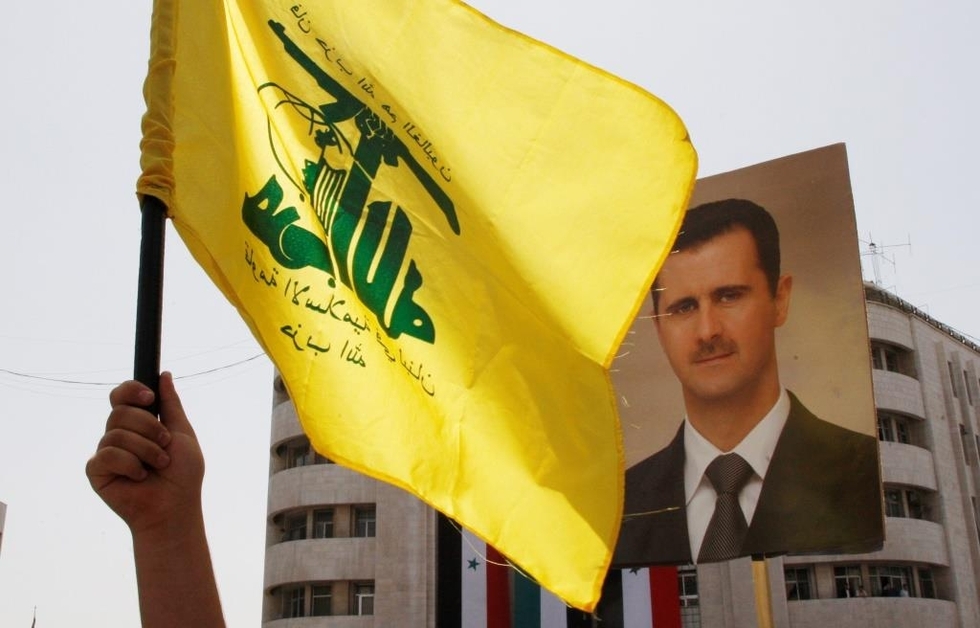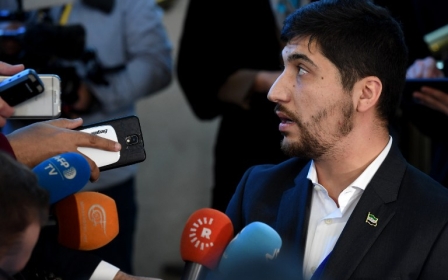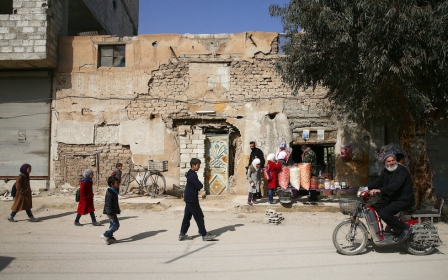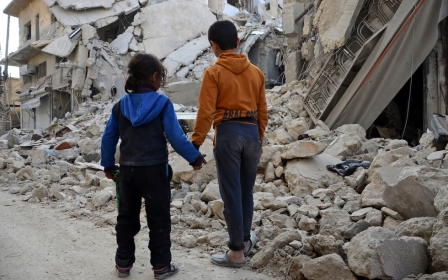Hezbollah facing loss of morale over Syrian quagmire: Report

Hezbollah risks alienating its core support network if it continues to pursue its current strategy in Syria, a report based on interviews with sources inside and close to the group said on Tuesday.
The new report released by the International Crisis Group (ICG), entitled "Hezbollah's Syria Conundrum" and released to coincide with the resumption of peace talks in Kazakh capital Astana, highlights the Lebanese militant group's manpower and discipline headaches, suggesting that it has an interest in toning down its sectarian rhetoric and giving real backing to the peace process.
"When Hezbollah threw its fighters into Syria in 2013, it fought primarily to save itself," the report finds.
"Had the Assad regime collapsed or been defeated by US-backed regional powers, it could have faced a hostile Sunni successor in Damascus and lost its essential arms channel from Iran.
"Today, its core objective of preserving the regime has been met, but there is no end in sight to the war."
In order to avoid being dragged further into the Syrian "quagmire" – in which Hezbollah has already lost over 1,600 fighters – Hezbollah must enter talks with some rebel groups, stop launching new offensives and tone down sectarian rhetoric, the report finds.
The sectarian rhetoric employed during the war so far, the report finds, has severely damaged the group's credibility and reputation.
"From a 'party of the oppressed' and a Lebanon-based and centred 'resistance' movement standing up to Israel, it has projected itself across the border and morphed into a powerful regional force.
"Once acclaimed by Arabs for struggle against a common enemy, most recently in the 2006 Lebanon war, it is [now] widely viewed as a sectarian Shia militia and, in parts of Syria, a ruthless occupier."
It has also, the ICG writes, left discipline and morale among frontline fighters under threat.
"Of course I wish we were fighting Israel and not in a conflict that is dividing the Arab world," one fighter told ICG researchers.
A former fighter who had engaged in battles with Israel told researchers that fighters in the current battle were less committed, and less religiously disciplined.
"Our generation used to pray the entire night before going into battle. Now, you see some of these guys spending their days in cafes smoking shisha before they go off to Syria."
An Iraqi cleric with close ties to Hezbollah told researchers that the lack of discipline among Hezbollah fighters in Syria was down to the fact that only sectarian, rather than political, rhetoric was being used to encourage young men to join the battle.
"What would push young [Lebanese] Shias to fight in Syria? Very few would go for Bashar's sake, or even Iran's.
"It's a single stone of the [Shia] Sayyida Zeinab shrine [in Damascus] that mobilises them."
The cleric also warned that, if the group continues to focus on purely sectarian rhetoric to swell support for its military engagement in Syria, it could have "dangerous" consequences for the region.
"This could be very dangerous in the long run. One day, leaders may sit around the negotiating table, but it will be very difficult to heal broken spirits from this sectarian rift."
Middle East Eye propose une couverture et une analyse indépendantes et incomparables du Moyen-Orient, de l’Afrique du Nord et d’autres régions du monde. Pour en savoir plus sur la reprise de ce contenu et les frais qui s’appliquent, veuillez remplir ce formulaire [en anglais]. Pour en savoir plus sur MEE, cliquez ici [en anglais].




